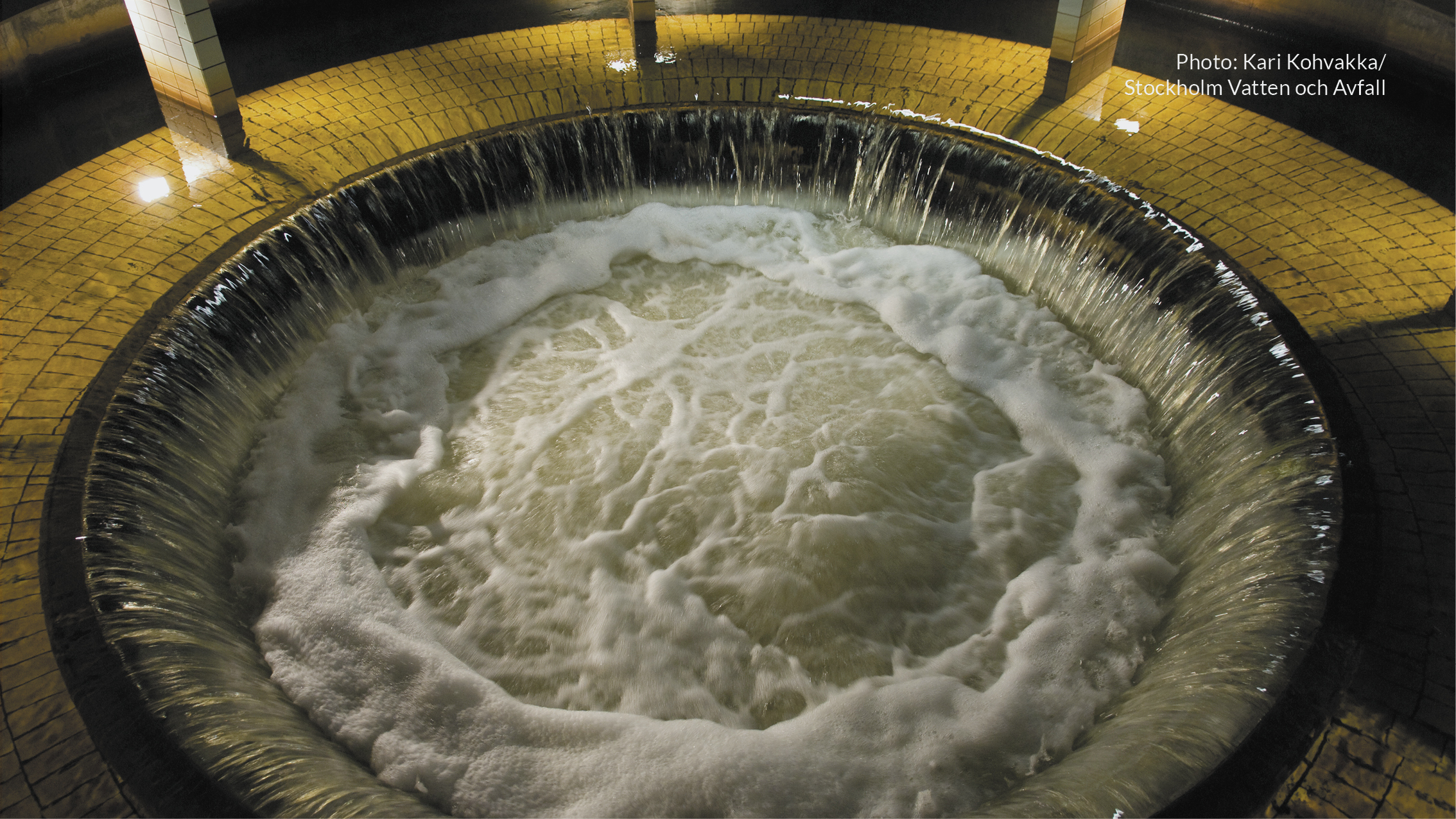Testing wastewater to detect waves of COVID-19 infections

Henriksdal wastewater treatment plant. Photographer: Kari Kohvakka/Stockholm Vatten och Avfall.
Pandemic outbreaks can come in several waves, as occurred with the Hong Kong flu of 1968 and the so-called swine flu in 2009. Now, a group of scientists, among them researchers from KTH and SciLifeLab, will keep track of the COVID-19 developments by testing wastewater.
The fact that the virus can be detected in wastewater, provides new opportunities to estimate the spread of COVID-19 in society. In a collaboration between KTH Royal Institute of Technology, SciLifeLab and Stockholm Vatten och Avfall, scientists will study wastewater samples from the wastewater treatment plants in Henriksdal and Bromma. The idea is to use genetic analyses to follow the development of COVID-19 in a large part of Stockholm’s population.
“This gives us the opportunity to trace the spread of the infection while it is ongoing. We can quickly get an early first warning for a second wave of the virus”, says David Nilsson, Director of KTH Water Centre, in a news article from KTH.
The idea is to collect wastewater from several wastewater treatment plants, filter the contents and extract the genetic material, to analyze the occurrence and extent of the virus. Since the genetic material is derived from hundreds of thousands of individuals, the method provides a cheap way of monitoring the overall load of the virus in the population.
SciLifeLab researchers Anders Andersson (KTH) and Cecilia Williams (KTH/KI) are two of the scientists involved in the initiative. Anders Andersson’s lab will conduct DNA sequencing of the virus’ genetic material, to follow how it mutates over time in the population. Cecilia Williams’ lab will perform detection of the genetic material using PCR technology; a quick and sensitive analysis that can detect very low levels of the virus.
“We’re basically using the same type of diagnostic assay that is used for clinical testing, which we have set up in our lab”, says Cecilia Williams.
Read more: KTH news article.




